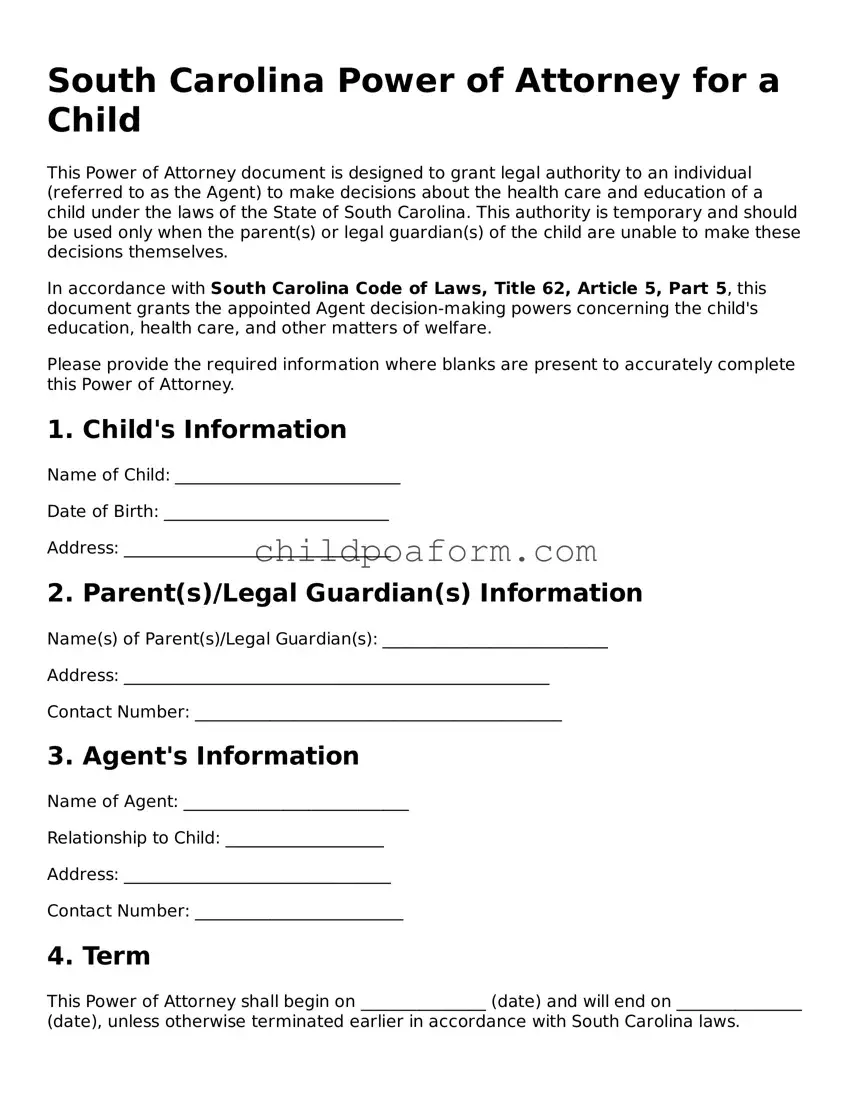Instructions on Utilizing South Carolina Power of Attorney for a Child
Giving someone power of attorney (POA) for your child is a big decision. This legal document empowers another person to make decisions and take actions on behalf of your child, usually when you're not able to do so yourself. It's used often when a parent is unable to care for their child for a certain period due to various reasons such as being out of the country, medical incapacitation, or other personal circumstances. In South Carolina, filling out a Power of Attorney for a Child form requires careful attention to detail to ensure it's legally valid.
- Start by gathering all necessary information, including the full legal names and addresses of the parent(s) or guardian(s) granting the power, the full name and address of the person receiving the power (the attorney-in-fact), and the child’s full name and date of birth.
- Access the official South Carolina Power of Attorney for a Child form. You can typically find this through state government websites or by consulting a legal professional who can provide or direct you to the correct form.
- Enter the date the document is being created at the top of the form.
- Fill in the sections requiring the parent(s) or guardian(s) information. Make sure to include your relationship to the child next to your name, such as “parent” or “legal guardian.”
- Insert the name and information of the designated attorney-in-fact. This person will have the authority to make decisions for your child in your absence.
- Specify the powers being granted. Most forms will include a list of decisions the attorney-in-fact can make on behalf of the child, such as educational, medical, or general welfare decisions. If there are specific powers not to be included, those should be clearly indicated on the form.
- State the duration of the Power of Attorney. This might be a specific time frame or could be left ‘until revoked’. Ensure this section is completed according to your preferences and specific situation.
- Some forms require details about the child. If so, fill in the child’s full name, date of birth, and any other requested information.
- Review the form carefully to ensure all information is accurate and complete.
- Sign the form in the presence of a notary public along with any required witnesses. In South Carolina, it’s crucial for the POA to be notarized to have legal effect.
- Provide the attorney-in-fact with a copy of the signed document and keep the original in a safe place. You may also want to give copies to relevant parties, such as your child’s school or healthcare provider.
Completing the South Carolina Power of Attorney for a Child form is like setting up a safety net—it's about planning ahead to ensure your child's needs are met even when you can't be there to do it yourself. Remember, while this document is powerful, you can revoke it at any time as long as you're legally capable. It’s also a good idea to periodically review the POA agreement and update it as needed to reflect any changes in your situation or preferences.
